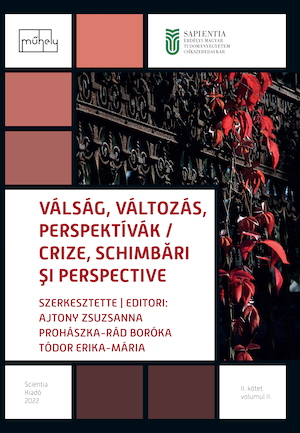NEVETÉS, ÉLETLENDÜLET ÉS A GÉPIESSÉG KÉPTELENSÉGE: BERGSON KOMIKUMELMÉLETÉNEK LÉLEKTANI JELENTŐSÉGE
LAUGHTER, VITALITY, AND THE ABSURDITY OF AUTOMATISM – THE PSYCHOLOGICAL IMPORTANCE OF BERGSON’S THEORY OF LAUGHTER
Author(s): Dóra Dergez-Rippl
Subject(s): Philosophy, History of Philosophy, Contemporary Philosophy
Published by: Scientia Kiadó
Keywords: intuition; philosophy; psychology; art; laughter; humour;
Summary/Abstract: For Bergson, humour is a social phenomenon, and it needs artistic media to work well. Humour has a specific logic pointing beyond rationality. An epistemological investigation of laughter is theoretically required because the human ability of laughing – according to Bergson – is not a mere evolutionary reaction but a philosophical-psychological instinct, namely the ability for intuition of life. Within the confines of comedy, Bergson distinguishes several types of humour. He intends to emphasize that comedy stands on the boundary between life and art, and thus it trends to the universal. The philosophical relevance of humour reveals itself in being conducive to learning the technique of paying attention to life. The artist feels this human aim: the desire to contemplate ourselves free from external interests. Bergson calls this contemplation intuition. With this ability, one can turn to one’s own self. According to Bergson, this willingness proves the aesthetical ability of mankind, which has a subtle aim: to search for ourselves beyond our sense. In my paper, I would like to present the main elements of Bergson’s theory of laughter. Furthermore, I would like to emphasize that Bergson’s centenarian theory is still relevant.
Book: Válság, változás, perspektívák / Crize, Schimbări şi Perspective II.
- Page Range: 15-27
- Page Count: 13
- Publication Year: 2022
- Language: Hungarian
- Content File-PDF

